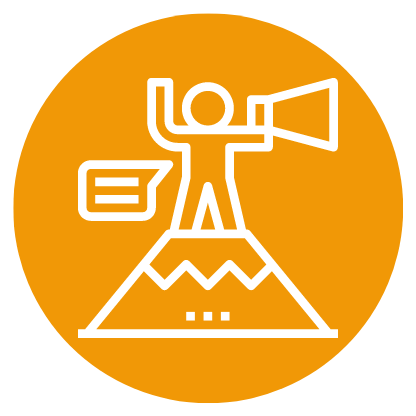How To Coach Leader (By Asking Questions) | Winning By Design
Reference: Winning by Design. (2019, August 20). How To Coach (by asking questions) | Coaching Leaders | Winning By Design [Video]. YouTube.
We Make Your Education Count

Get the Credit You Deserve and Become the Most Attractive Job Candidate by Earning and Posting A+ Badges to Your Linkedin Profile.
Sign Up to Get Started at Accredicity
|
Discover the key questions to ask that will help you coach effectively and guide your team to success. Jacco Van Der Kooij in his video "How To Coach (By Asking Questions)" explains the essential elements of being a great coach. Through this video, he explains the importance of asking the right questions to guide managers, rather than telling them what to do. He further explains the mistakes to avoid, such as asking "does that make sense" and asking questions that are essentially giving advice rather than seeking out a better understanding. He then goes on to explain the types of questions to ask to get the right answers, such as open-ended questions and questions that help the person being coached to become self-reflective. Finally, he emphasizes the importance of ending a coaching session on a positive note to evoke action and results. Learning Outline1. Ask open-ended questions instead of questions that imply understanding or lead to a certain answer. Instructional ContentBeing an effective coach means asking the right questions. Poorly worded questions can lead to false positives, and a lack of action. On the other hand, great questions can help guide your team to the right decision. To start off the coaching session, it is important to start with a question that avoids self-serving statements or telling your team what to do. Instead, ask a question like "What's on your mind?". This open-ended question allows you to get an understanding of the context of the conversation, and can help shape the rest of the session. It is also important to ask questions that will help your team think in the right direction. Ask about their challenges, and follow up with questions like "What challenges are there for you?" or "What else?" These types of questions can help your team think more critically and discover solutions for themselves. Be careful when asking questions that start with "why". These can make people defensive, so it is better to use questions like "What" or "How" to start. Lastly, end your coaching session with a thoughtful question that will help your team reflect on what they have learned. Questions like "What did you learn today?" or "What was the most useful thing you learned today?" can help your team take away something valuable from the session. The key to successful coaching lies in the questions you ask. By asking the right questions, you can help guide your team in the right direction and help them come to their own solutions. With the right questions, you can help your team unlock their full potential. Leadership
|

Coaching is like a game of checkers. As a coach, it's important to ask the right questions to help your players make the best moves. Bad questions like "does that make sense?" can lead to false positive answers and can be ineffective. Good questions like "What challenges are you facing now?" help your players think in the right direction. At the end of the coaching session, ask "what did you learn today?" It's a neutral question that will help you understand how emotionally invested your players are in taking action. Asking the right questions is the key to being a great coach! Video Quotes1. “Whenever you ask that question what is the answer that you get 99% of the time? Yes, yes that makes sense because it implies two things either the person asking the question wasn't very clear but I don't want to make them feel bad or worse I don't really understand what's going on but I don't want to announce it to them or my team so I'll just assume that I'll figure it out later with context I'll say yes so I get a lot of false positive therefore that question is not a very effective question.” -Jacco Van Der Kooij 2. “What challenges are you facing now? Most people when confronted with challenges will blame outsiders so I also want you to consider following up that question with what challenges are there for you or what is the real challenge there for you and it gets people to be a little bit more self reflective think internally about what is going on what they should improve on.” -Jacco Van Der Kooij 3. “What was the most useful thing that you learned today? When you have it worded like this it causes the person to think, well regardless if I think the quality of this meeting was good or bad there's probably something useful that I've taken away from it.” -Jacco Van Der Kooij Related Quotes"It's not about telling people what to do, it's about asking the right questions to help them find the answers." - James Caan, Coaching Leader in the video. "When you ask a question, it's a way of showing them that you have faith in them." - Alex Jones, Coaching Leader in the video. "Questions are the key to unlocking potential." - Mark Rogers, Coaching Leader in the video. Competencies1. Coaching Learning Outcomes1. Analyze: Compare and contrast the differences between bad and effective questions for coaching. Sample Answers1. I learned that it is important to ask effective questions when coaching. Questions that can be interpreted as giving advice should be avoided and open-ended questions should be used to get people to think in the right direction. 2. I also learned that it is important to be mindful when asking questions that start with 'why', as they can make people defensive. Instead, it is better to ask neutral questions such as 'what did you learn today?' 3. Lastly, I learned that it is important to end coaching sessions with a question that encourages self-reflection and encourages people to think about the useful things they have learned. This helps to create a positive outcome and will lead to improved results over time. Jacco Van Der KooijJacco Van Der Kooij is an International Executive Coach and Facilitator, and the Founder and CEO of the Leadership & Coaching Institute (LCI). Van Der Kooij has been a professional coach for over 25 years and has been instrumental in the development and implementation of ICF accredited coach training programs, in addition to providing executive coaching, leadership development, and team building services. He has been featured in numerous publications and is a sought-after speaker for events around the world. He holds degrees in business, psychology, and coaching and is a certified ICF Professional Certified Coach (PCC).Jacco Van Der Kooij is an expert in How To Coach because of his extensive knowledge, experience, and qualifications in the areas of coaching, leadership, and team building. Learning DesignThe three competencies of coaching, leadership and effective communication are essential for any successful leadership role. Coaching helps leaders to develop their skills in leading and encouraging others, while leadership involves the ability to create a vision and inspire others to follow that vision. Effective communication is also essential for leaders in order to ensure that their message is heard, understood and acted upon. The framework for teaching these competencies should focus on developing the skills of self-awareness, critical thinking, problem-solving and decision-making. Self-awareness is important in order to identify areas for improvement and to understand the impact of one's actions on others. Critical thinking and problem-solving skills help leaders to analyze situations, identify potential solutions and make informed decisions. Finally, decision-making is essential in order to develop the confidence to make and implement decisions that are best for the team. AssessmentQ: According to the video, what is the most effective way to start coaching sessions? Answer: B. Ask what's on their mind Questions1. How can coaches ask better questions to get the most out of their coaching sessions? KeywordsCoaching Leaders, Winning By Design, Coaching Questions, Asking Questions, Improving Behavior, Self Reflective Questions, Useful Learning, Positive Outcome Facts1. Coaches should ask questions that will lead to action, not just confirmation. Trends1. Host a coaching workshop on how to ask the right questions that drive positive outcomes. SourceThis learning instructional guidance was formulated using the GPT-3 language model created by OpenAI. ShareAs a coach, great questions are key. Ask open-ended & self-reflective questions to guide team to think differently & spark positive outcomes! #coaching #leadership #teamwork 😀 @Accredicity |







 10 Creds - Leadership
10 Creds - Leadership



